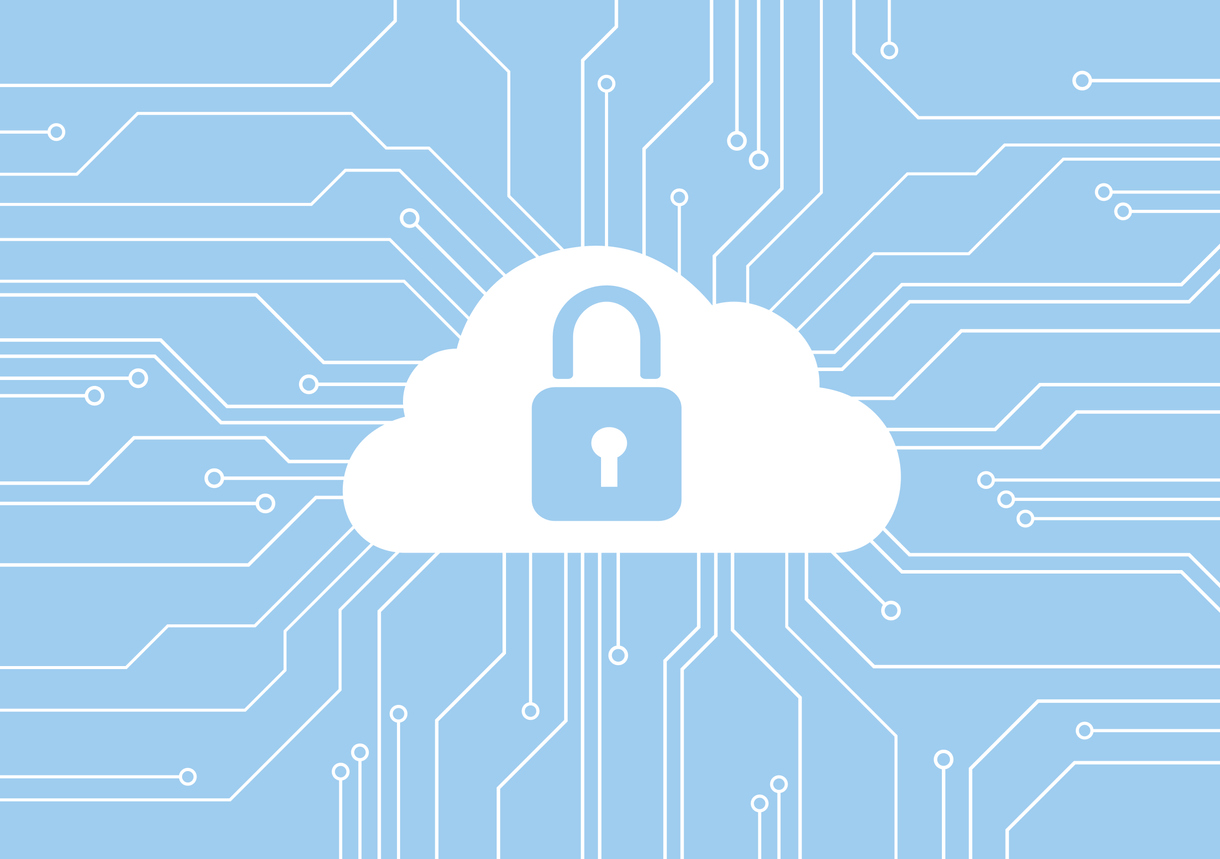- Articles
- The 7 Benefits of Cloud Security Managed Serv...
Table of Contents
In today’s world, there are two types of businesses:
- Those who have adopted advanced cloud-based security solutions to safeguard their data
- Those who believe that on-premise security is still the best and safest option
If you’re in the first category, congratulations! But If you’re in the second, it’s time for a wake-up call.
Cloud security managed services offer convenience, adequate protection from malicious attacks, and easy scalability.
Considering that the average cost of downtime due to a cyber attack is $1,410 per minute and only up to 97% of data can be recovered, the protection that cloud security managed services offer cannot be ignored.
In this article, we will look at cloud security managed services, why they are beneficial for your business, and help you figure out the best solution.
Two types of service providers deliver cloud solutions – cloud service providers and managed service providers. Let us take an in-depth look to understand their importance to SMEs.
What are Managed Cloud Services?

Managed cloud services refer to the partial or complete management and control of a client’s cloud platform. This can include migration, maintenance, security management, and optimization.
Since someone else manages the cloud service, business owners do not have to concern themselves with the technical aspects. The service provider will be taking care of everything.
Using a managed cloud service provider, businesses can ensure that their cloud resources are up and running effectively. They can even avoid the additional costs of hiring and training a separate cloud management team.
Working with managed cloud security solutions providers is a collaborative process. The vendor evaluates the user’s applications and data to determine the best cloud resources for the user’s IT infrastructure. Furthermore, they create a custom plan with detailed steps to build and run an optimized cloud environment.
What do managed cloud services include?
Managed cloud services include a variety of IT-related tasks, such as software architecture engineering, operations management, 24/7 help desk support, hosting, implementation, and maintenance. Handing all these responsibilities to a trusted partner gives your internal IT teams more freedom to focus on other initiatives.
Managed Service Providers vs. Cloud Service Providers
Are managed service providers and cloud services providers the same? We say – not really.
A managed service provider can be considered a cloud service provider, but a cloud service provider is not a managed service provider.
Still confused? Let’s go into more detail.
What is a managed service provider?
A managed service provider (MSP) is a vendor that delivers services like infrastructure, network, application, and security through ongoing and regular support. MSPs provide remote and proactive administration in their data center or a third-party data center.
The business models of MSPs apply to various environments like on-premise, multi-cloud, cloud, or hybrid infrastructures. Some MSPs can be considered managed cloud service providers if they offer services for cloud resources or include services from other types of providers.
On the other hand…
What is a cloud service provider?
A cloud service provider (CSP) is a company that provides on-demand services to cater to your cloud computing needs. CSPs deliver these services through public cloud infrastructure or a private or hybrid model to meet the needs of their customers.
Let us take a quick look at the key differences between the two:
| Managed Service Providers | Cloud Service Providers |
|
|
|
|
|
|
Now that we have the differences between the two down let us look at some benefits of managed cloud security services.
Benefits of Enterprise-Managed Cloud Security

Implementing strong cloud security is an important decision for any business. However, many companies opt out of this choice to save their time, resources, and money – 46% of businesses say that budget is a barrier to entry.
It is essential to understand that investing in a robust cyber security system is a smart decision in the long run.
Here are some benefits of investing in enterprise-managed cloud security.
1. Seamless automation
Once set up, the configurations of cloud security services reduce the need for human intervention. This saves the time spent on managing security and reduces the risk of error.
A managed cloud service provider also frees you from worrying about having to update it constantly. The service provider is always aware of the advances and upgrades to the network infrastructure as required.
2. Strong network security
Securing your network is extremely important for using the cloud. Cloud security can be a complicated process. If not properly secured, your cloud network can be prone to multiple attacks.
According to Microsoft’s 2021 Digital Defense Report, Microsoft logs and processes over 24 trillion security signals per day. In the last year alone, the company blocked:
- 9 billion endpoint threats
- 31 billion identity threats
- 32 billion email threats
To ensure security, you need knowledgeable IT staff. Managed cloud service providers have skilled personnel who can keep your cloud network secure from unauthorized access.
3. Cost-effectiveness
When you use a managed cloud service provider, you are not responsible for any capital or operational expenses that come up during the maintenance of the network infrastructure.
All you have to do is make regular payments to your service provider. Though managed cloud service providers may seem expensive up front, they are cost-effective and worth the price in the longer run.
4. Rapid response time
The biggest advantage of cloud security managed services? Round-the-clock support. This 24-hour support will save you time and money since you will have immediate expert assistance when an incident occurs.
5. Disaster recovery
Having a disaster recovery plan in place helps safeguard and retrieve your data in case of an unanticipated disaster, like a data breach or data loss. It also helps in getting your data back soon.
With cyberterrorists widening their operations – 43% of attacks have been on small businesses – you need to have a plan.
Providers offer disaster recovery plans and processes that help your business get back on track as early as possible.
6. Centralized control
A managed cloud service provider ensures that all of your rules are in one location. It helps simplify network administration and support. It also comes in handy when you need to make any changes or upgrades to your network.
7. Business agility
Managed cloud security service providers offer an agile experience to businesses looking to expand. Plus, they take care of all infrastructure-related requirements and IT issues. It acts as a helping hand to your in-house team and helps them execute their growth plans.
Businesses that work with managed cloud service providers benefit from improved security and enhanced capability for fulfilling compliance requirements. The improved security and compliance efficiency ensure that the company’s cloud network can manage heavy and critical workloads.
Having said that, no system is perfect. There are some challenges with using managed cloud security services.
Challenges of Business-Managed Cloud Security

As technology evolves, so make network threats. The most prominent companies in the world are not immune to data breaches, as proven by LinkedIn and Facebook’s data leaks.
Companies need to give data security the topmost priority. But it is not all smooth sailing. Here are a few of the most common challenges faced in cloud security.
1. Data breaches
A data breach is when malicious attackers, like hackers, manage to steal the confidential information of the company’s customers. For example, in 2021, a significant data leak exposed personal information. It accounted for 214 million Facebook, Instagram, and LinkedIn users, making it one of the worst data breaches in recent history.
In a data breach, reviving the lost data or the recovery process can be very tricky. Plus, a data breach can cause irreversible damage to the company’s reputation, and financial woes because of regulatory implications, legal liabilities, incident response costs, and decreased market value.
No one is impervious to data breaches, but cloud security managed services invest heavily in ensuring that your data is as safe as possible. They have the know-how and capability to implement measures.
2. Compliance with regulatory mandates
Businesses assume they are getting complete security working with a managed cloud service provider. However, compliance goes beyond international and federal regulations. It is essential to ensure that the cloud service provider addresses additional industry mandates that include EU data protection, PCI, DSS, FERPA, etc.
3. Cloud migration issues
The cloud migration process must be broken down into stages to reduce the risk of critical errors leading to data corruption. Trying to get everything done in a single go proves to be a major disaster. Straightforward migration strategies help smooth business flow.
It is of utmost importance that businesses are careful when choosing a managed cloud service provider for their company. Amaxra (us!) has years of experience with cloud migration and can help you with a seamless transition.
Examples of Cloud Security Managed Solutions
Several cloud security managed services for small and mid-sized companies. Here are some viable options for your business that we recommend as experienced Microsoft partners.
Microsoft Cloud App Security license
Microsoft Cloud App Security License is a well-built solution for handling all cloud application issues, such as cyber threats and compliance with mandates. It collects and reports critical information that IT administrators need to keep the company’s cloud assets secure from external attacks and protected from internal accidents.
It is compatible with leading services like AWS, Dropbox, G Suite, Google Cloud, Salesforce, etc. Microsoft Cloud App Security acts as an added layer of security to all the SaaS applications in your company.
Amaxra helps fine-tune Microsoft Cloud App Security’s three deployment modes, which can be integrated into the existing architecture. These include:
- Log collection from firewalls, secure web gateways, and SIEMs
- API connectors that the cloud provider provides
- Reverse proxy architectures integrated with Azure AD
Microsoft Cloud App Security can identify all the cloud apps and services that are used across your company. All relevant data is captured on managed and unmanaged devices. Any suspicious activity is automatically prioritized for further scrutiny.
Features
- Mitigating Shadow IT Risk
Microsoft Cloud App Security lets you discover every app on your network and investigate usage patterns. It delivers an automatic risk assessment of more than 16,000 apps based on 80 risk factors.
- Detecting and Remedying Cybersecurity Threats
The software combines multiple detection methods to identify critical information about how employees are using cloud applications. It gives you an option to enable anomaly detection policies to get alerts based on potential security concerns like unusual multiple file download activities, ransomware, malware, suspicious inbox forwarding, activity from suspicious IP addresses, etc.
- Securing sensitive information
Microsoft Cloud App Security makes it easy to discover, classify, and protect sensitive information that employees share and store on the cloud.
Pros & Cons
| Pros | Cons |
|
|
Azure Cloud Security license
Azure enables data security through multiple configurable tools and services that meet different security demands and enhance your cloud security. Azure’s Security Center is a centralized security management solution that helps you adapt your security controls to a changing threat landscape and proactively protects your organization against multiple kinds of attacks.
Azure’s Cloud Security Posture Management lets you proactively manage your security workloads. The “secure score” option in the security center helps you quantify your environment’s security status using multiple pre-built security controls. It also offers recommendations to improve your score.
Features
- Web Application Security
Azure helps you monitor all your apps and ensure secure data transactions. It offers protection against shadow IT by helping you detect cloud services your organization uses and identify associated risks.
- Network Security Groups (NSGs)
NSGs filter inbound and outbound traffic through five-tuple rules using source, source port, destination port, and protocol. Network Security Groups let you achieve fine control over east-west and north-south traffic and help segregate your application communication.
- Identity and Access Management
Azure offers role-based access control (RBAC) enabled by Azure Active Directory (AD) to control access to hosted applications. It recommends following the principle of least privilege (PoLP) to give users only the minimum access required for their work. This authorization depends on the role assigned to the user.
Pros & Cons
| Pros | Cons |
|
|


Need Help with Microsoft Licensing?
Leave your Microsoft licensing, security, and software solutions to us so you can concentrate on moving your business forward.Drop Us a Line
Amaxra Beacon and Beacon Lite
Amaxra delivers secure cloud-based Microsoft IT solutions to hundreds of small and medium businesses. Amaxra Beacon is a set of turnkey cyber-security solutions that can defend SMBs using the Microsoft 365 Business suite of productivity apps, protecting the company from persistent malicious threats.
SMBs can easily add Amaxra Beacon Lite services to their Microsoft 365 cloud security deployments.
Amaxra deploys Microsoft 365 solutions for our customers with advanced cyber-security features, including multi-factor authentication and limited administrative rights for all users. We also provide cyber-security protections related to employee identity.
We ensure that only authorized users access your cloud-based corporate assets and Microsoft 365 applications, such as:
- Word
- Excel
- PowerPoint
- Outlook
- Teams
- OneDrive
- SharePoint
Amaxra Beacon builds on that baseline protection with advanced premium options to protect user identity and applications, data, communications, and devices that employees use every day.
Features
| Amaxra Beacon | Amaxra Beacon Lite |
|
|
|
|
|
|
FAQs

“What is managed cloud storage?”
Managed cloud storage is a secure service designed to offload a company’s data storage requirements to a third-party managed service provider.
The service provides a high level of flexibility, enabling businesses to access their data anywhere, on any device. It also takes deployment, maintenance, and security responsibilities off the business owner’s shoulders.
“What is managed cloud computing?”
Managed cloud computing delivers computing services like servers, storage, databases, networking, software, and analytics over the cloud or the internet.
Companies often rent access to storage for their cloud service provider instead of owning their computing infrastructure.
“What is a managed compliant cloud?”
A managed compliant cloud ensures that your organization meets the compliance requirements for internal policies and global regulations, many of which are specifically related to cloud control.
Choosing the Right Cloud Security Managed Service
Amaxra Beacon shines a light on your business problems and helps you understand your business goals with our experts and consultants.
With our in-depth insight into the Microsoft product ecosystem and expertise in cloud security managed services, you can create a precise solution that is tailored for your business.
For more information about our security solutions, get in touch with us.


Get Started Today
We'll build a secure and complete Microsoft software solution for your business while you concentrate on what's important.
